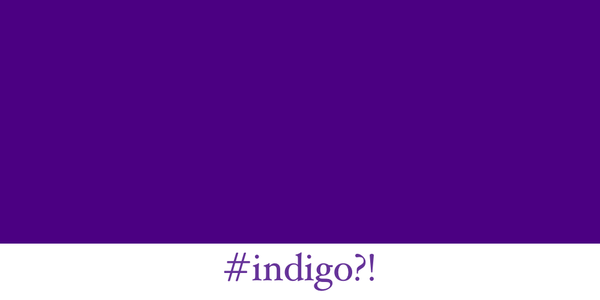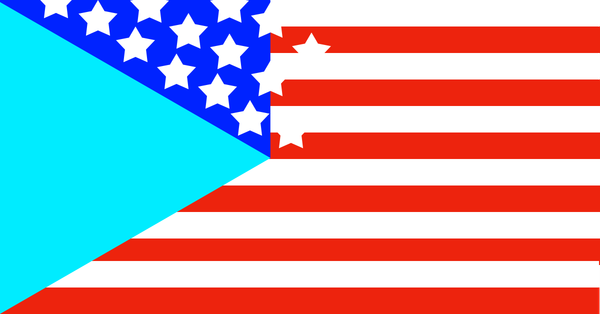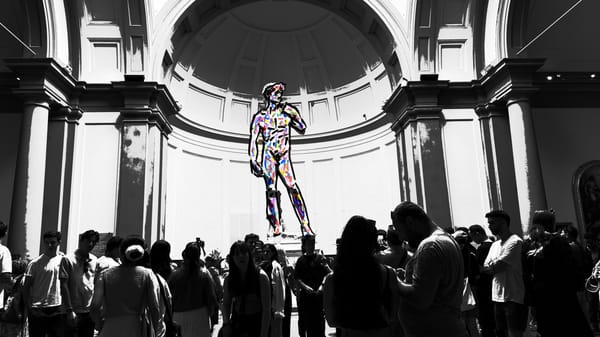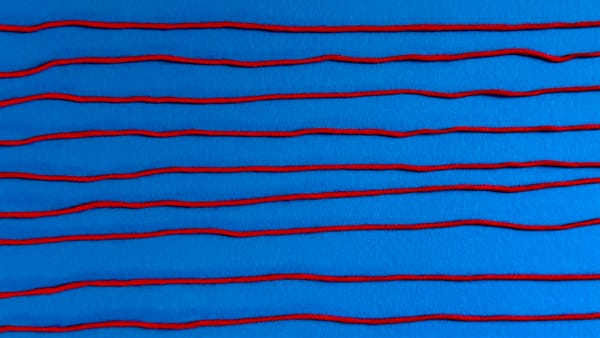Much a-blue about nothing
An incomplete newsletter about William Shakespeare and the color blue.
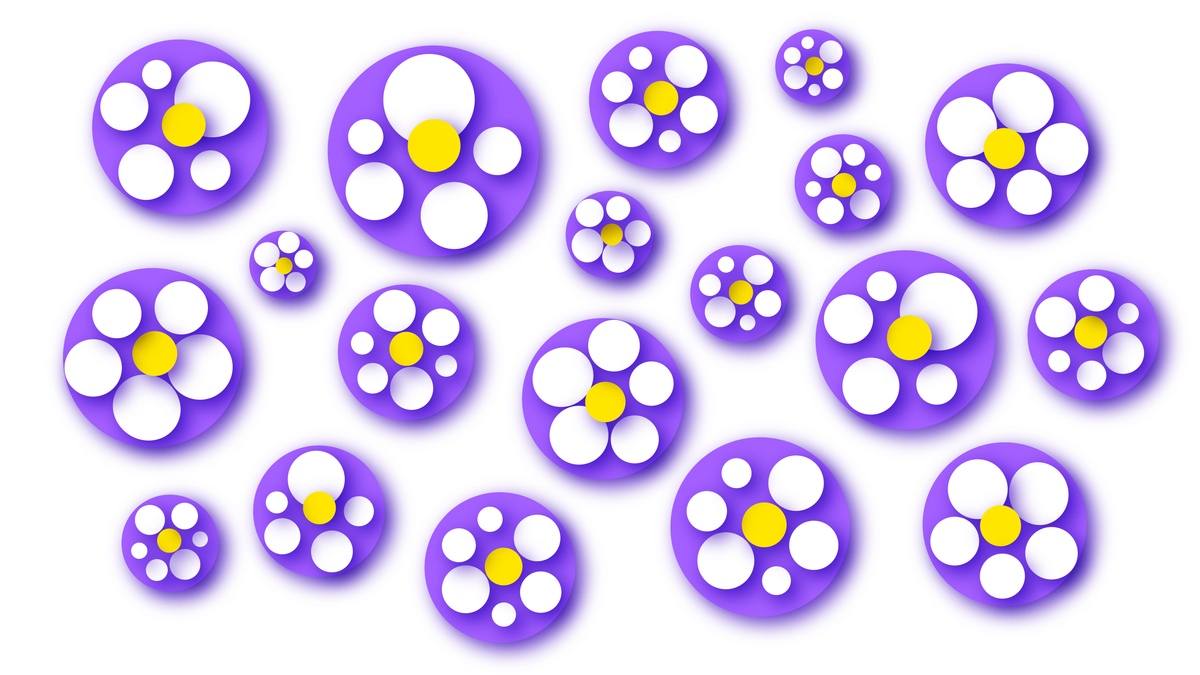
During the London plague of 1592-1593, William Shakespeare did the same thing a lot of us did during the pandemic of 2020: he wrote some epic poetry which became his most popular work throughout his lifetime.
I’ve identified more than 100 color words which are used across all of Shakespeare's writing (eg. plays, poems and sonnets), and have developed an additional appreciation for his writing. It felt a little much for a single newsletter, so I decided to focus this on the color blue. Even covering all instances of the word "blue" resulted in a very long newsletter, so this is an incomplete start.
N.B. I cannot, and will not, take any responsibility for the title. My neighbor Kenny mentioned it, and it unfortunately works. I apologize. I'll forward any complaints.
Venus and Adonis
The first poem he wrote during the plague was based on the Greek myth of Venus and Adonis. For a colorphiliac, the poem is a dream. When I first read it on a whim, a few months ago, I could not move from my spot until I finished all 1216 lines. By its conclusion, I realized the point of the entire poem was to the the reason why the Adonis flower is the color combination it is.
From the first words, it begins with vivid color imagery that begins to tell the story:
Even as the sun with purple-colour'd face
Had ta'en his last leave of the weeping morn,
Rose-cheek'd Adonis hied him to the chase;
Hunting he loved, but love he laugh'd to scorn;
We don’t usually associate the sun with purple, so it forces us to imagine the scene of sunrise, and note the time of day. Adonis is immediately introduced by rose-cheek’d being an indicator of both his age and love of life.
The Human Body
Throughout many of his plays, sonnets, and poems, Shakespeare created a framework of the colors of the body, or how they could be described.
The cheeks and lips tend to be compared to red colored hues, from rose to damask to crimson to scarlet to ruby to ruddy to cherry to lusty red to blushing to coral to ‘indifferent red’ to ‘purple pride’.
The white face and body, on the other hand, are described as shades of white: fair, lily, pale, primrose, alabaster, ivory, milk-white, cream-faced, and even snow.
"Fair" is a color word that Shakespeare throughout his works uses more than nearly any other, nearly 800 times, though not always in the context of color. It’s the combination of white and red which he seems to define as beauty. On multiple times, he refers to the mixture or war between white and red in the cheeks.
As the second stanza of Venus and Adonis continues:
'Thrice-fairer than myself,' thus she began,
'The field's chief flower, sweet above compare,
Stain to all nymphs, more lovely than a man,
More white and red than doves or roses are;
Nature that made thee, with herself at strife,
Saith that the world hath ending with thy life.
By the end of the poem, we see the reason for the rise of the purple sun:
And in his blood that on the ground lay spill'd,
A purple flower sprung up, chequer'd with white,
Resembling well his pale cheeks and the blood
Which in round drops upon their whiteness stood.
Gods and Rainbows
Shakespeare used the gods for storytelling and color quite often.
The sea, for example, was Neptune and green, with yellow sand. Apollo, was the sun and described as golden. Cynthia, Diana, or Phoebe, was the silver moon. Mars was red, and Iris, of course, was the rainbow.
As Ceres said to Iris:
Hail, many-colour'd messenger, that ne'er
Dost disobey the wife of Jupiter;
Who with thy saffron wings upon my flowers
Diffusest honey-drops, refreshing showers,
And with each end of thy blue bow dost crown
My bosky acres and my unshrubb'd down,
Rich scarf to my proud earth; why hath thy queen
Summon'd me hither, to this short-grass'd green?
Tempest, IV, 1
While the phrase is filled with color, it does beg the question: why does Ceres only mention the “blue” bow?
Similarly, Ulysses says about Hector:
His crest that prouder than blue Iris bends.
Troilus and Cressida, I,3
In other places, when referring to the rainbow as the rainbow, whether in the Merry Wives of Windsor, or the Winter’s Tale, no specific colors are mentioned, rather than it implies that all the colors of the rainbow are involved, and in King John, it calls it “wasteful and ridiculous excess” to “add another hue onto the rainbow”.
Therefore, to be possess'd with double pomp,
To guard a title that was rich before,
To gild refined gold, to paint the lily,
To throw a perfume on the violet,
To smooth the ice, or add another hue
Unto the rainbow, or with taper-light
To seek the beauteous eye of heaven to garnish,
Is wasteful and ridiculous excess.
King John, IV, 2
Read “Blew”, not “Blue”
As a word, blue has one of the most complex backstories in the English language. It comes from not one or two sources, but the effective root is from three (or even four) sources, which all became conflated into a single color misunderstood color word. It should also help to point out that across all of Shakespeare’s original texts, it was not spelled “blue” but “blew”.
Blue Eyes
In two of his poems, (Venus and Adonis and The Rape of Lucrece) we see a word choice that he doesn’t make anywhere else - seemingly blue eyes.
Regarding Venus:
The night of sorrow now is turn'd to day:
Her two blue windows faintly she up-heaveth,
Like the fair sun, when in his fresh array
He cheers the morn and all the earth relieveth;
And as the bright sun glorifies the sky,
So is her face illumined with her eye;
and regarding Lucrece
And round about her tear-stained eye
Blue circles stream'd; like rainbows in the sky
The other times the eyes are described with blue are either as a black and blue eye, or one time we’ll see where an eyebrow is painted blue.
It's in these Shakespeare’s poems from that period that we first see reference to “blue blood” and “blue-veined”. It is being bloodied, in fact that is most related to blueness, namely being beaten or pinched “black and blue”.
A lean cheek, which you have not; a blue eye and sunken,
which you have not; an unquestionable spirit, which you have not;
a beard neglected, which you have not;
As You Like It, III, 2
And then we come across a very weird conversation in the Winter’s Tale:
Mamillius.
Not for because
Your brows are blacker; yet black brows, they say,
Become some women best, so that there be not
Too much hair there, but in a semicircle
Or a half-moon made with a pen.
Second Lady.
Who taught you this?
Mamillius.
I learnt it out of women's faces. Pray now
What colour are your eyebrows?
First Lady.
Blue, my lord.
Mamillius.
Nay, that's a mock: I have seen a lady's nose
That has been blue, but not her eyebrows.
Winter's Tale, II, 1
Reread the above conversation from the Winter’s Tale, as per the original quarto:
Mamillius.
What colour are your eyebrows?
First Lady.
Blew, my lord.
Mamillius.
Nay, that's a mock: I have seen a lady's nose
That has been blew, but not her eyebrows.
Winter's Tale, II, 1
The humor which is embedded in that line becomes apparent. If Mamillius wanted to infer violence, he could have said a “lady’s eye”, but he didn’t. It reveals Shakespeare's wordplay and his cognizance that everyday language was evolving and it wasn’t simply an example of homophones, but you could only understand the word from context. Centuries later, the writers of Arrested Development still played with the inherent homophonic confusion.
Words that blow
Because blow has a variety of meanings. We associate blew (or blowing) with breath, but it would be connected to any brief action verb. Like blows of the boxers. Which could also be connected to bruises (black and blue) which result from blows.
- Hits/punches (blow for blow)
- Lightning
- Flowers
- Candles
- Breath
Crossed Lightning Blows
And when the cross blue lightning seem'd to open
The breast of heaven, I did present myself
Even in the aim and very flash of it.
Julius Caesar I, 3
When we read this as “cross-blew lightning” as opposed to “cross[-d] blue lightning”, as it was in the original printing of Julius Caesar, it can clarify what the word is doing there. We can see that lightning strikes are elsewhere connected to “blows”. It seems like like the blew meant a connection between two of the meanings of the word “blow” — one meaning an brief exhalation or breath, and the second meaning a hit or a strike.
Be swift like lightning in the execution;
And let thy blows, doubly redoubled,
Fall like amazing thunder on the casque
Of thy adverse pernicious enemy:
Richard II, I, 3
But also, lightning is described as quick, like a breath.
Well, do not swear: although I joy in thee,
I have no joy of this contract to-night:
It is too rash, too unadvised, too sudden;
Too like the lightning, which doth cease to be
Ere one can say 'It lightens.' Sweet, good night!
This bud of love, by summer's ripening breath,
May prove a beauteous flower when next we meet.
Good night, good night! as sweet repose and rest
Come to thy heart as that within my breast!
Romeo & Juliet, II,2
In the first act and scene of Midsummer’s Night Dream, the Lysander and Hermia gather to discuss all the reasons love doesn’t work. The connection of cross’d lovers and lightning
LYSANDER
Swift as a shadow, short as any dream;
Brief as the lightning in the collied night,
That, in a spleen, unfolds both heaven and earth,
And ere a man hath power to say 'Behold!'
The jaws of darkness do devour it up:
So quick bright things come to confusion.
HERMIA
If then true lovers have been ever cross'd,
It stands as an edict in destiny:
Then let us teach our trial patience,
Because it is a customary cross,
As due to love as thoughts and dreams and sighs,
Wishes and tears, poor fancy's followers.
Midsummer’s Night Dream, I, 1
A Blown Flower
When Dasies pied, and Violets blew,
And Cuckow-buds of yellow hew:
And Ladie-smockes all silver white,
Do paint the Medowes with delight.
Love's Labour's Lost V,2
The word blew is functioning more as a verb than an adjective here. Obviously, you are supposed to associate the color word in here, the violets are blowing in the wind, or blooming. Pied, blew, hew, and do (paint) are used as verbs which slyly remind us of the the words homophones.
It seems that blown is used like “bloomed” or “blossomed”.
My unblown flowers, new-appearing sweets!
Richard III, IV, 4
But thou art fair, and at thy birth, dear boy,
Nature and Fortune join'd to make thee great:
Of Nature's gifts thou mayst with lilies boast,
And with the half-blown rose.
King John, III,1
Fair ladies mask'd are roses in their bud;
Dismask'd, their damask sweet commixture shown,
Are angels vailing clouds, or roses blown.
Love's Labour's Lost, V,2
A Blew Fire
If the lights burn blew, it means that it flickered before dying. It’s terrifying that the light has gone out. Again, fires something which are blown.
The lights burn blew. It is now dead midnight.
Cold fearful drops stand on my trembling flesh.
Richard III, V,3
As we see Cromwell say in Henry VIII:
My mind gave me,
In seeking tales and informations
Against this man, whose honesty the devil
And his disciples only envy at,
Ye blew the fire that burns ye: now have at ye!
Henry VIII, V, 3
And in Venus and Adonis:
Their light blown out in some mistrustful wood,
Even so confounded in the dark she lay,
Having lost the fair discovery of her way.
Blew as an ephemeral state
Imagine for a second that blew meant something which was ephemeral — similar to how a blown breath in cold air is visible for a second before it disappears. Lightning is ephemeral, as is an Iris (or a rainbow).
Even a mountain, when standing back, seems that the top of a large mountain is capped in the ephemeral, like it could disappear at any moment.
Blew as a state of being
We describe a cyanotic individual, that is, someone who stops breathing, as looking blue, due to a decrease in the amount of oxygen bound to the hemoglobin in the red blood cells, turning someone purple or blue. In our minds, it sounds perfectly logical to describe them as this color which fits into our perception of the color blue.
But what if we are overthinking it. The person has stopped breathing, meaning they had already blew their last breath. One of the points to back this up, is that the word pale is the more common phrase used - meaning that they lost color.
Blew as air
Another possibility is simple the connection between air and breath. The heavens are blew, simply because they are air.
Blew as a color word
This all does not mean that blue was not also a color hue, but I think that it was also used as a general indicator of color.
This is to say, when we read of blue iris or cross blue lightning, it's not an accident that the word can be read as "blew" and "blue". Shakespeare loved his double entendres.
It is possible that the blooming of flowers is in fact connected to initial color words, because flowers were the original source of diverse color. When blue coats or eyebrow shadow were mentioned, it was referring to the specific color.
In Old and Medieval English, color words worked slightly differently, as I may have mentioned at times. The word for color in old english was “bleo” and in middle english was “blee”. And a list of colors included: bla, ble, blei, bley, bli, blo, blu, blaw.
Just looking through Oxford English Dictionary's list of sources for blue we see a variety of spellings:
- blyw, blewe, blu, blo, blewest, blwe, bluwe, and blue.
In terms of hues of blue, we also happen to see in the OED (with my own explanation):
- ynde blewe (inde blue / color of inde dye)
- asure blewe (azure blue / color of azure)
- violet-blyw silc (violet-blue silk / violet colored silk)
- heuenez blwe (sky blue / sky color)
- fair blu (fair blue / light color)
Blue after Shakespeare
As I indicated above with regard to Neptune, Shakespeare considered the ocean to be green, not blue. Shakespeare never even referred to "inde" or indigo as a dye, but that's likely because indigo had likely not yet come to England from the New World.
While Shakespeare had a signficant impact on the English language, we have to remember that it was only a half-century after he died that the first color wheel was designed and, separately, Newton created began to publish his theory of the refraction of light.
